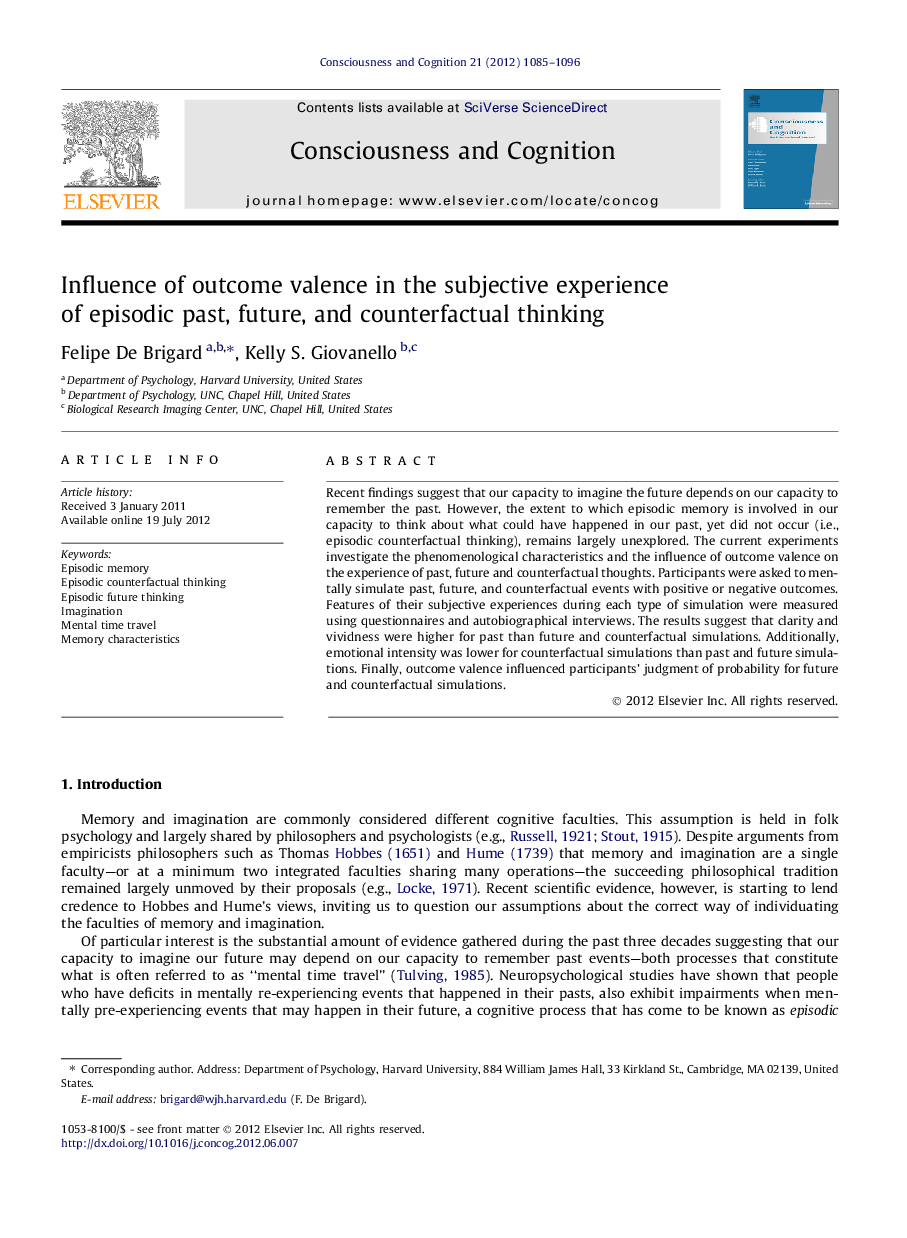| Article ID | Journal | Published Year | Pages | File Type |
|---|---|---|---|---|
| 927601 | Consciousness and Cognition | 2012 | 12 Pages |
Recent findings suggest that our capacity to imagine the future depends on our capacity to remember the past. However, the extent to which episodic memory is involved in our capacity to think about what could have happened in our past, yet did not occur (i.e., episodic counterfactual thinking), remains largely unexplored. The current experiments investigate the phenomenological characteristics and the influence of outcome valence on the experience of past, future and counterfactual thoughts. Participants were asked to mentally simulate past, future, and counterfactual events with positive or negative outcomes. Features of their subjective experiences during each type of simulation were measured using questionnaires and autobiographical interviews. The results suggest that clarity and vividness were higher for past than future and counterfactual simulations. Additionally, emotional intensity was lower for counterfactual simulations than past and future simulations. Finally, outcome valence influenced participants’ judgment of probability for future and counterfactual simulations.
► Phenomenology and effect of outcome valence in mental simulations was investigated. ► Participants simulated past, future and counterfactual events. ► Questionnaires and adapted interviews were used. ► Past simulations had more detail and were clearer than future and counterfactual. ► Outcome valence influenced emotional intensity and occurrence probability judgments.
